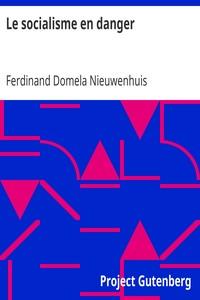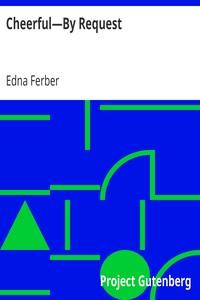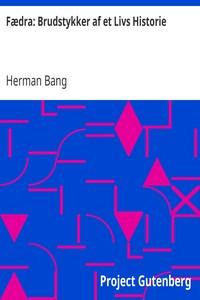Read this ebook for free! No credit card needed, absolutely nothing to pay.
Words: 45583 in 8 pages
This is an ebook sharing website. You can read the uploaded ebooks for free here. No credit cards needed, nothing to pay. If you want to own a digital copy of the ebook, or want to read offline with your favorite ebook-reader, then you can choose to buy and download the ebook.


: Fighting in Flanders by Powell E Alexander Edward Alexander - World War 1914-1918 Campaigns Belgium World War I
Foreword
Appendix
Foreword
Nothing is more unwise, on general principles, than to attempt to write about a war before that war is finished and before history has given it the justice of perspective. The campaign which began with the flight of the Belgian Government from Brussels and which culminated in the fall of Antwerp formed, however, a separate and distinct phase of the Greatest of Wars, and I feel that I should write of that campaign while its events are still sharp and clear in my memory and before the impressions it produced have begun to fade. I hope that those in search of a detailed or technical account of the campaign in Flanders will not read this book, because they are certain to be disappointed. It contains nothing about strategy or tactics and few military lessons can be drawn from it. It is merely the story, in simple words, of what I, a professional onlooker, who was accorded rather exceptional facilities for observation, saw in Belgium during that nation's hour of trial.
An American, I went to Belgium at the beginning of the war with an open mind. I had few, if any, prejudices. I knew the English, the French, the Belgians, the Germans equally well. I had friends in all four countries and many happy recollections of days I had spent in each. When I left Antwerp after the German occupation I was as pro-Belgian as though I had been born under the red-black-and-yellow banner. I had seen a country, one of the loveliest and most peaceable in Europe, invaded by a ruthless and brutal soldiery; I had seen its towns and cities blackened by fire and broken by shell; I had seen its churches and its historic monuments destroyed; I had seen its highways crowded with hunted, homeless fugitives; I had seen its fertile fields strewn with the corpses of what had once been the manhood of the nation; I had seen its women left husbandless and its children left fatherless; I had seen what was once a Garden of the Lord turned into a land of desolation; and I had seen its people--a people whom I, like the rest of the world, had always thought of as pleasure-loving, inefficient, easy-going--I had seen this people, I say, aroused, resourceful, unafraid, and fighting, fighting, fighting. Do you wonder that they captured my imagination, that they won my admiration? I am pro-Belgian; I admit it frankly. I should be ashamed to be anything else.
E. Alexander Powell
London, November 1, 1914.
War correspondents regard war very much as a doctor regards sickness. I don't suppose that a doctor is actually glad that people are sick, but so long as sickness exists in the world he feels that he might as well get the benefit of it. It is the same with war correspondents. They do not wish anyone to be killed on their account, but so long as men are going to be killed anyway, they want to be on hand to witness the killing and, through the newspapers, to tell the world about it. The moment that the war broke out, therefore, a veritable army of British and American correspondents descended upon the Continent. Some of them were men of experience and discretion who had seen many wars and had a right to wear on their jackets more campaign ribbons than most generals. These men took the war seriously. They were there to get the news and, at no matter what expenditure of effort and money, to get that news to the end of a telegraph-wire so that the people in England and America might read it over their coffee-cups the next morning. These men had unlimited funds at their disposal; they had the united influence of thousands of newspapers and of millions of newspaper-readers solidly behind them; and they carried in their pockets letters of introduction from editors and ex-presidents and ambassadors and prime ministers.
Then there was an army corps of special writers, many of them with well-known names, sent out by various newspapers and magazines to write "mail stuff," as dispatches which are sent by mail instead of telegraph are termed, and "human interest" stories. Their qualifications for reporting the greatest war in history consisted, for the most part, in having successfully "covered" labour troubles and murder trials and coronations and presidential conventions, and, in a few cases, Central American revolutions. Most of the stories which they sent home were written in comfortable hotel rooms in London or Paris or Rotterdam or Ostend. One of these correspondents, however, was not content with a hotel window viewpoint. He wanted to see some German soldiers--preferably Uhlans. So he obtained a letter of introduction to some people living in the neighbourhood of Courtrai, on the Franco-Belgian frontier. He made his way there with considerable difficulty and received a cordial welcome. The very first night that he was there a squadron of Uhlans galloped into the town, there was a slight skirmish, and they galloped out again. The correspondent, who was a sound sleeper, did not wake up until it was all over. Then he learned that the Uhlans had ridden under his very window.
Crossing on the same steamer with me from New York was a well-known novelist who in his spare time edits a Chicago newspaper. He was provided with a sheaf of introductions from exalted personages and a bag containing a thousand pounds in gold coin. It was so heavy that he had brought a man along to help him carry it, and at night they took turns in sitting up and guarding it. He confided to me that he had spent most of his life in trying to see wars, but though on four occasions he had travelled many thousands of miles to countries where wars were in progress, each time he had arrived just after the last shot was fired. He assured me very earnestly that he would go back to Michigan Boulevard quite contentedly if he could see just one battle. I am glad to say that his perseverance was finally rewarded and that he saw his battle. He never told me just how much of the thousand pounds he took back to Chicago with him, but from some remarks he let drop I gathered that he had found battle-hunting an expensive pastime.
One of the great London dailies was represented in Belgium by a young and slender and very beautiful English girl whose name, as a novelist and playwright, is known on both sides of the Atlantic. I met her in the American Consulate at Ghent, where she was pleading with Vice-Consul Van Hee to assist her in getting through the German lines to Brussels. She had heard a rumour that Brussels was shortly going to be burned or sacked or something of the sort, and she wanted to be on hand for the burning and sacking. She had arrived in Belgium wearing a London tailor's idea of what constituted a suitable costume for a war correspondent--perhaps I should say war correspondentess. Her luggage was a model of compactness: it consisted of a sleeping-bag, a notebook, half a dozen pencils--and a powder-puff. She explained that she brought the sleeping-bag because she understood that war correspondents always slept in the field. As most of the fields in that part of Flanders were just then under several inches of water as a result of the autumn rains, a folding canoe would have been more useful. She was as insistent on being taken to see a battle as a child is on being taken to the pantomime. Eventually her pleadings got the better of my judgment and I took her out in the car towards Alost to see, from a safe distance, what promised to be a small cavalry engagement. But the Belgian cavalry unexpectedly ran into a heavy force of Germans, and before we realized what was happening we were in a very warm corner indeed. Bullets were kicking up little spurts of dust about us; bullets were tang-tanging through the trees and clipping off twigs, which fell down upon our heads; the rat-tat-tat of the German musketry was answered by the angry snarl of the Belgian machine-guns; in a field near by the bodies of two recently killed cuirassiers lay sprawled grotesquely. The Belgian troopers were stretched flat upon the ground, a veteran English correspondent was giving a remarkable imitation of the bark on a tree, and my driver, my photographer and I were peering cautiously from behind the corner of a brick farmhouse. I supposed that Miss War Correspondent was there too, but when I turned to speak to her she was gone. She was standing beside the car, which we had left in the middle of the road because the bullets were flying too thickly to turn it around, dabbing at her nose with a powder-puff which she had left in the tonneau and then critically examining the effect in a pocket-mirror.
"For the love of God!" said I, running out and dragging her back to shelter, "don't you know that you'll be killed if you stay out here?"
Free books android app tbrJar TBR JAR Read Free books online gutenberg
More posts by @FreeBooks


: Round Anvil Rock: A Romance by Banks Nancy Huston - Historical fiction; Love stories; Kentucky Fiction; Jackson Andrew 1767-1845 Fiction







